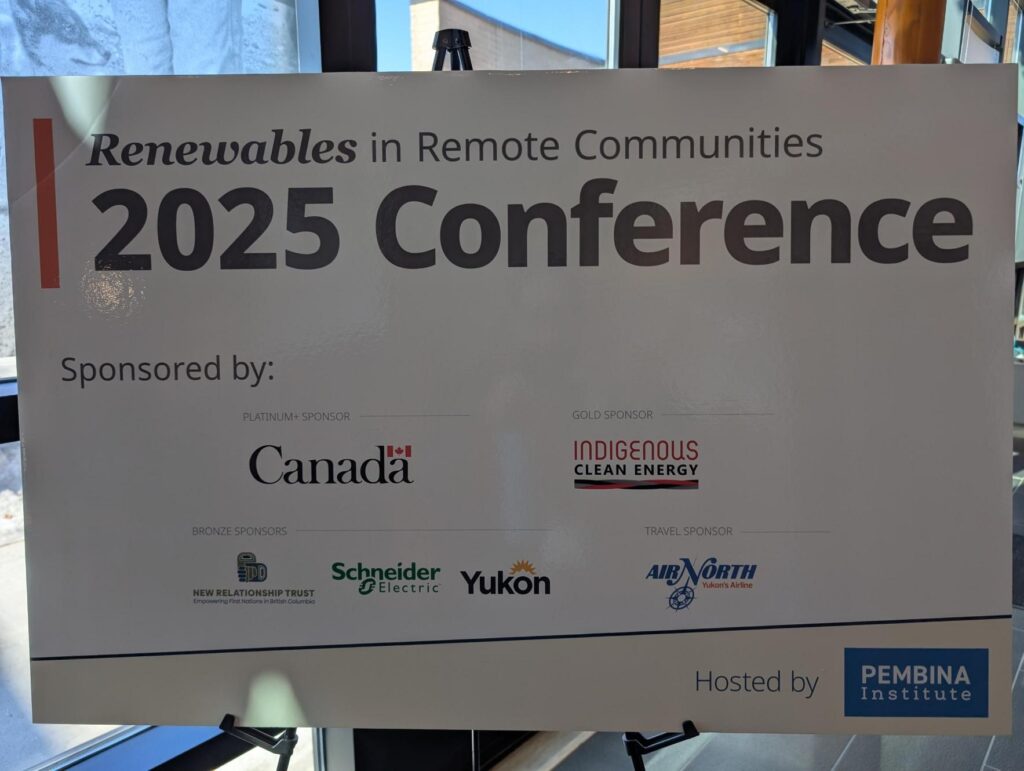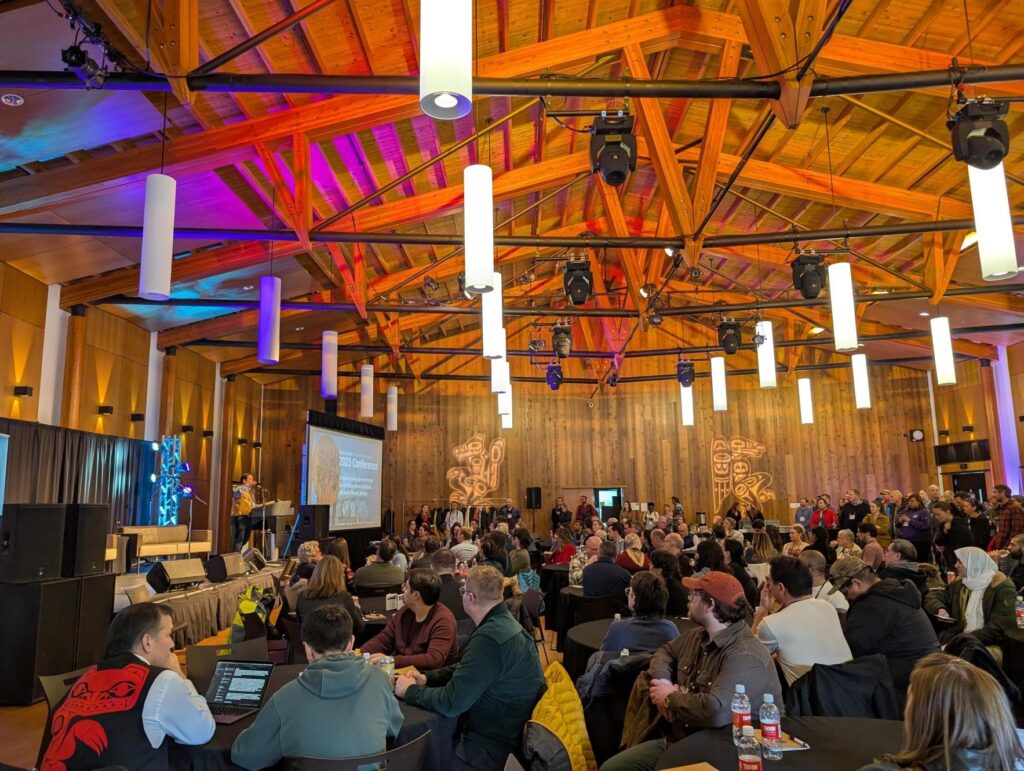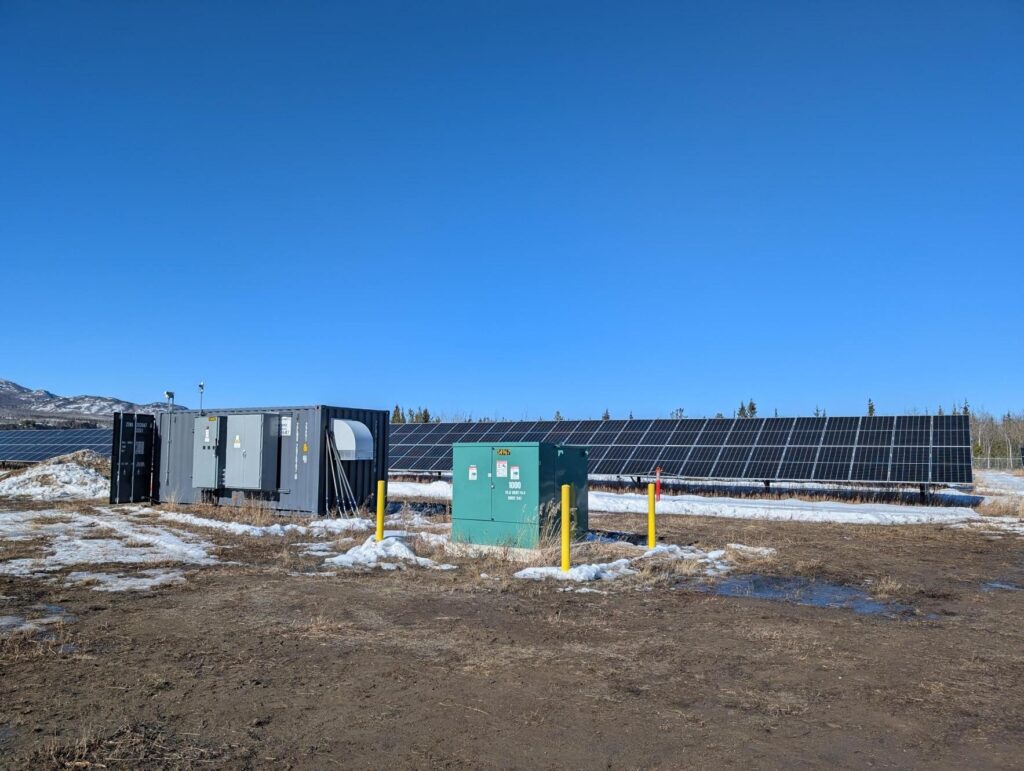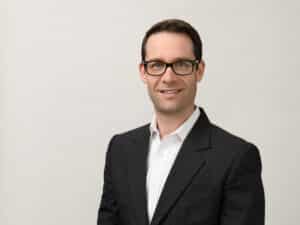A Brighter Future Together: Renewables, Investment, and Energy Sovereignty in Remote Communities: RiRC 2025
In our world, thought must meet action to drive results.
That’s what brought us to Whitehorse, Yukon, from March 25 to 28 for the 4th edition of the Renewables in Remote Communities (RiRC 2025) conference, hosted by the Pembina Institute. Held on the shared traditional territory of the Kwanlin Dün First Nation and Ta’an Kwäch’än Council, the event brought together Indigenous leaders, engineers, policy experts, and developers committed to building a cleaner, more equitable energy future in Canada’s remote communities.
I attended alongside Charles Lewthwaite, a Renewable Energy Systems Engineer at Hedgehog Technologies. Together, we joined conversations shaped by urgency, collaboration, and purpose.


Bridging Readiness and Reality
Removing the ecological and fiscal impact of diesel primary power generation on these communities is vital to the health and well-being of the people living there. I was privileged to witness the deep commitment that so many are demonstrating in the fight for energy sovereignty and am encouraged by the progress being made. But it’s not enough, and not fast enough. The path forward still depends on one critical factor: investment.
Many remote communities still have a long way to go before they can have reliable and secure energy that is respectful of the land on which the energy is put to work.
At MCW, our role often begins with connecting around “energy”. We want to help communities develop projects through strategic planning, design support, and technical due diligence. In order to do that, we need to assemble teams of consultants, designers and funders who are committed to making a difference through energy projects. MCW focuses on electrical and fuel demand side management, with energy use being the forefront of our design responsibilities. With partners like Hedgehog Technologies, we can reduce energy consumption, decarbonize buildings and then design properly sized power generation facilities (with a heavy leaning on renewables) to provide lasting energy security and reliability for a remote community. Be it lighting, mechanical systems, or any other energy-consuming device, MCW will be there to green the way. We want a future that works, and communities that everyone can be proud of.

Shared Responsibility
The program was unambiguous. All people involved in energy generation, distribution, and consumption need to band together to solve the past and present problems facing these communities on their road to reliable and clean energy in whatever form it’s delivered.
We’re committed to doing our part as partners, listeners, and technical allies. Along with other indigenous and non-indigenous organizations, we can show that there is a way forward if we apply ourselves. While MCW looks to partner and leverage our experience in this space, we open the lines for dialogue and knowledge sharing needed to make a brighter energy future a reality for the remote communities that truly need it.
Don’t take your power for granted. Don’t turn on your lights without considering how others don’t have the same ability in a reliable and equitable way.
We are ENERGIZED for a better future together.
Author

Graham Lovely, P.Eng., LEED AP BD+C
Partner, MCW Consultants Ltd.
